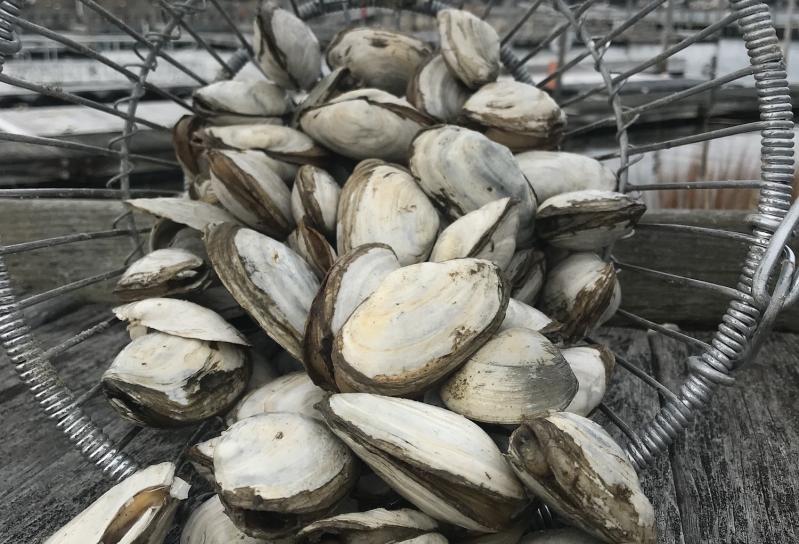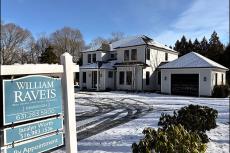As they have in past years, the East Hampton Town Trustees voted on Monday to authorize a special season for the taking of soft clams or razor clams by the method known as powering, or churning.
Those possessing a town commercial shellfish license are eligible to apply for a special permit at the trustee office, in the Lamb Building on Bluff Road in Amagansett, between July 28 and Aug. 8. Special permit holders may participate in the special season, which will start on Aug. 11 and conclude at sundown on Dec. 31.
During that span, permit holders may harvest soft clams or razor clams by directing an outboard motor’s propeller toward the bottomland to loosen the soil, exposing the clams, in all trustee waters certified for shellfishing. The activity will be permitted on weekdays during daylight hours.
The method will not be permitted within 100 feet of a road end or other vehicle access trail or kayak area, nor in any area containing eelgrass or widgeon grass, an oyster gardening location, or any area seeded by the town’s shellfish hatchery with oysters within the past three years, with hard clams within the past five years, or with bay scallops within the past year as delineated on maps published by the shellfish hatchery. Permit holders will be limited to two bushels of soft or razor clams per day.
The move comes at the request of baymen, John Aldred of the trustees told his colleagues. In the past, he said, the trustees have been advised that churning has little harmful impact, and that the method may even benefit bivalves as it may reduce predator populations. Past special seasons have not proven detrimental to shellfish populations or the environment, according to the resolution the trustees passed on Monday, yet are beneficial to the economic well-being of those who rely upon town shellfish resources for their livelihoods.
According to the town code, the taking of soft clams between May 1 and Aug. 31 is prohibited, but the trustees are authorized to issue special permits for the taking of shellfish from designated areas.
Boats containing soft clams and/or razor clams in trustee waters on days when powering is permitted will be subject to inspection by the trustees or the harbormaster, and permit holders must maintain a record of the quantity of soft and/or razor clams harvested by location and date and provide it to the trustees by Dec. 31.
“When this started, we were interested because soft clams seem to have all but disappeared,” Francis Bock, the trustees’ clerk, told his colleagues. “So we were interested in finding out if they were just in deeper waters. That’s the reason we wanted them to report back to us, not that we’re going to issue the information to the general public.”
Applicants for the special permit must also execute a sworn statement that they have not been convicted of a violation of the town code chapter pertaining to shellfish within the past year, and anyone found guilty of violating the chapter within the past year will be ineligible for the special permit.




